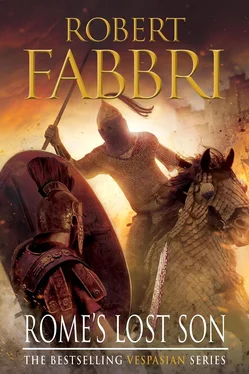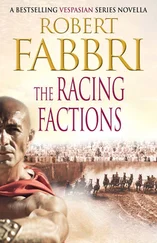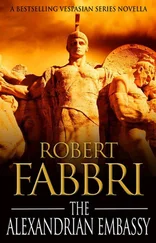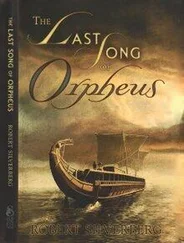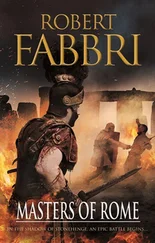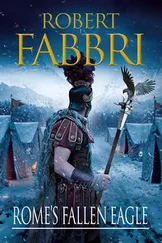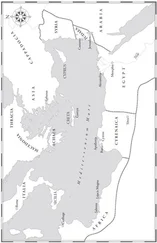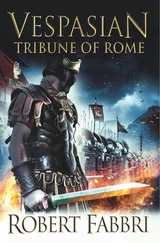Robert Fabbri - Rome's lost son
Здесь есть возможность читать онлайн «Robert Fabbri - Rome's lost son» весь текст электронной книги совершенно бесплатно (целиком полную версию без сокращений). В некоторых случаях можно слушать аудио, скачать через торрент в формате fb2 и присутствует краткое содержание. Год выпуска: 2015, ISBN: 2015, Издательство: Atlantic Books, Жанр: Исторические приключения, на английском языке. Описание произведения, (предисловие) а так же отзывы посетителей доступны на портале библиотеки ЛибКат.
- Название:Rome's lost son
- Автор:
- Издательство:Atlantic Books
- Жанр:
- Год:2015
- ISBN:9780857899668
- Рейтинг книги:5 / 5. Голосов: 1
-
Избранное:Добавить в избранное
- Отзывы:
-
Ваша оценка:
- 100
- 1
- 2
- 3
- 4
- 5
Rome's lost son: краткое содержание, описание и аннотация
Предлагаем к чтению аннотацию, описание, краткое содержание или предисловие (зависит от того, что написал сам автор книги «Rome's lost son»). Если вы не нашли необходимую информацию о книге — напишите в комментариях, мы постараемся отыскать её.
Rome's lost son — читать онлайн бесплатно полную книгу (весь текст) целиком
Ниже представлен текст книги, разбитый по страницам. Система сохранения места последней прочитанной страницы, позволяет с удобством читать онлайн бесплатно книгу «Rome's lost son», без необходимости каждый раз заново искать на чём Вы остановились. Поставьте закладку, и сможете в любой момент перейти на страницу, на которой закончили чтение.
Интервал:
Закладка:
Vespasian stood next to Gaius amongst the other five hundred or so senators currently present in the city on the steps of the Curia, ready to welcome their Emperor. It had clouded over and a light rain now fell from the dull sky, dampening the wool of their togas and bringing out the scent of the urine in which they were washed.
The procession turned into the Forum and transactions along the arcades and the damp, open-air trial came to a brief halt, for politeness’ sake, until, with the Emperor’s passing, they could continue.
‘He does look his age,’ Vespasian commented out of the corner of his mouth as Claudius’ litter was set down at the foot of the steps. Pallas and Narcissus both accompanied it; the latter, with swollen ankles and making heavy use of a walking stick.
‘He looks eighty-four, not sixty-four,’ Gaius muttered. ‘He’s the same age as me and Magnus yet he looks as if he could be our father; his trouble is that he doesn’t abstain enough.’
Vespasian looked pointedly at his uncle’s corpulence. ‘Whereas you do, Uncle?’
Gaius rubbed his ample belly with affection, obscured not in the slightest by the copious folds of his toga. ‘A well-rounded physique is not necessarily the sign of reckless overindulgence; whereas bloodshot, baggy eyes that lack focus and a florid, to say the least, complexion does hint of excessive consumption of the fruit of Bacchus. And that, along with his almost complete baldness, his sagging arse and breasts, makes him look twenty years older than me and helps me to feel remarkably good about myself.’
Vespasian could not argue, for his uncle’s description of the ageing Emperor was very accurate; he looked even more ravaged than Tiberius had at the age of seventy-three, when Vespasian had been brought before him on his island hideaway of Capreae, twenty-four years before.
‘Moreover,’ Gaius continued in a whisper as the litter came to a halt in front of the Senate House, ‘it’s affected his mind; his grasp on detail has faded and his literary endeavours are so rambling now as to be barely intelligible.’
Pallas helped Claudius to his unsteady feet; he had evidently taken the Meditrinalia very seriously that morning. Claudius looked around at the senators, his eyes red and dewy and slightly downturned like his mouth, before shambling up the steps in a series of weak-kneed lurches, forcing his lictors to ascend faster than dignity dictated.
As Claudius passed, wreathed in a mist of wine fumes, Vespasian’s eye caught that of Narcissus as he followed his patron up the steps next to Pallas. The Greek showed a rare hint of surprise as he registered that the man whom he had sent out East to investigate his suspicions about the Parthian embassy was indeed back in Rome and had failed to inform him of the fact.
‘Senator?’ Narcissus crooned as he paused next to Vespasian. ‘You will, of course, come and see me at your earliest convenience?’
‘Of course, imperial secretary,’ Vespasian replied, unable to envisage a time of any convenience.
Narcissus nodded and then hobbled on after Claudius as the senators crowded up the steps in his wake, talking loudly of their eagerness to hear the Emperor’s speech while thinking quietly about how they were going to stay awake during what was normally an hour or two of eye-wateringly pedantic tedium.
‘The auspices from the sacrifice are good for the business of Rome. The Senate calls on our beloved Emperor, Tiberius Claudius Caesar Augustus Germanicus, to address the House,’ the Junior Consul, Marcus Asinius Marcellus, declaimed, standing next to the seated Claudius; behind him, in what was an outrage that had now become so commonplace that nobody remarked on it any more, sat Pallas and Narcissus.
‘I’m g-g-grateful, Conshul,’ Claudius said, remaining in his curule chair and unrolling what looked to be an unusually thick scroll; even the most ardent sycophants’ morale plummeted at the sight of it, for a long, stuttering speech from Claudius was not for the faint-hearted, especially when he was so obviously drunk. ‘C-c-consh-script Fathers, I am here t-t-t-to speak t-t-t-to you on the shub-b-bject of inheritansh.’
Vespasian kept his most attentive expression activated as his mind began to filter out the stream of legal precedent, rambling pedantry and patronisingly self-satisfied references to the ways of the ancestors, punctuated only by brief pauses for dabbing at the excess drool issuing from both corners of his mouth and the constant stream of slimy mucus oozing from his left nostril.
Vespasian’s eyes roved the four rows of senators, sitting on their folding stools on the opposite side of the Curia. There were more than a few new faces as a result of Claudius’ perpetual tinkering with the senatorial rolls but there were many whom he recognised: Sabinus’ son-in-law, Lucius Junius Paetus, was seated next to Vespasian’s former thick-stripe military tribune in the II Augusta, Gaius Licinius Mucianus; both men inclined their heads towards him as they became aware of his gaze. That they should be sitting together was no surprise to Vespasian; what was surprising was who was sitting on Paetus’ other side: Marcus Valerius Messalla Corvinus, the brother of the late Empress Messalina. Corvinus assiduously kept his eyes away from Vespasian; his old enemy was still keeping his promise to conduct himself as a dead man in Vespasian’s presence in return for Vespasian saving his life during the downfall of his sister. Vespasian, murmuring agreement and nodding in time with the rest of the Senate as they endured Claudius’ speech, wondered what could have possibly brought two senators, both indebted to him, so close to his sworn enemy. One thing was sure: a man was judged by whom he sat next to in the Senate. As he contemplated the question his eye wandered to another unlikely threesome: Servius Sulpicius Galba seated between the two Vitellius brothers, Lucius and Aulus. Aulus acknowledged Vespasian with studied noncommittal written on his face; their paths had first crossed on Capreae when Aulus’ father had pandered his son to Tiberius who much prized him for his oral favours. There was no sign of the svelte young teenager now; Aulus had run to fat in the last few years, as had his brother Lucius. Galba just stared straight ahead into the middle distance, his gaunt, patrician face struggling to conceal the disgust that he evidently felt at the ancient institution of the Senate being addressed by a stuttering and slavering fool.
Any thoughts about what Galba was doing seated with the Vitellii were pushed from Vespasian’s mind a moment later when his gaze alighted on the man responsible for his two-year exclusion from the human race: Paelignus. The runt of a procurator almost yelped in surprise as their eyes met; Paelignus evidently had no idea that Vespasian was alive, let alone back in Rome, and the way his eyes flicked around the chamber, as if looking for the nearest exit, brought a smile to Vespasian’s face. He nodded at him politely, the smile becoming toothy, and wagged his forefinger at him a couple of times, as if admonishing a naughty child. He was going to enjoy this, Vespasian decided; he would make him suffer before he killed him.
A communal gasp of shock jerked Vespasian back to the matter of Claudius’ speech. Claudius had paused and the few in his audience who had been paying some sort of attention were staring at him with unbelieving countenances while the majority of the Senate were trying to ascertain from neighbours the cause of the astonishment.
Vespasian turned to Gaius, next to him. ‘What did he say, Uncle?’
‘I’ve no idea, dear boy, but one look at the expressions of Pallas and Narcissus should be enough to tell you who has gained from whatever it was.’
Narcissus had the closest Vespasian had ever seen to a smirk on one corner of his mouth, whereas Pallas’ right eye was twitching irregularly.
Читать дальшеИнтервал:
Закладка:
Похожие книги на «Rome's lost son»
Представляем Вашему вниманию похожие книги на «Rome's lost son» списком для выбора. Мы отобрали схожую по названию и смыслу литературу в надежде предоставить читателям больше вариантов отыскать новые, интересные, ещё непрочитанные произведения.
Обсуждение, отзывы о книге «Rome's lost son» и просто собственные мнения читателей. Оставьте ваши комментарии, напишите, что Вы думаете о произведении, его смысле или главных героях. Укажите что конкретно понравилось, а что нет, и почему Вы так считаете.
